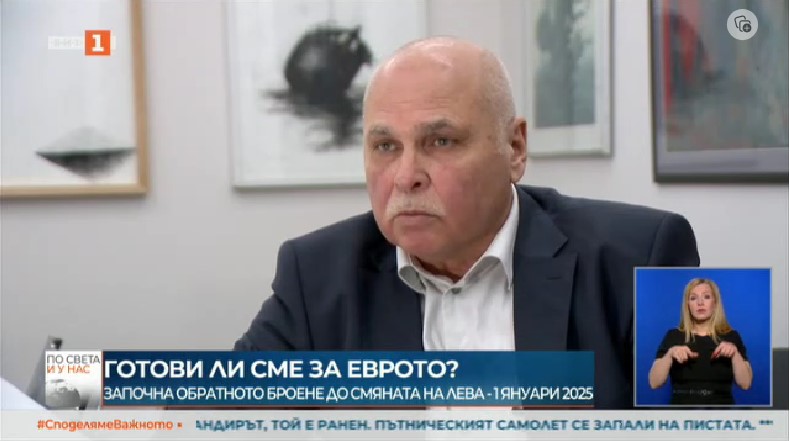The countdown to the introduction of the euro begins – 1 January 2025 is the indicative date for Bulgaria to become part of the eurozone. In the crucial year 2024, however, the BNB does not plan to print euro banknotes, although the design of the Bulgarian euro coins was published in mid-November.
The plan is to initially use the common European currency on loan, it becomes clear from the draft budget of our central bank. Instead, the BNB plans to continue investing in the production of levs and pennies - nearly 200 million leva are earmarked for new banknotes and coins.
In the middle of the year, Bulgaria is expected to receive an invitation to join the euro area and for a month the lev and the euro will serve for payments in parallel. Key in this process is the information campaign, which experts say should have already started.
"The government, unfortunately, has delayed a lot with the information campaign, with the measures under the euro adoption plan, which, unfortunately, could potentially create problems. It should be led by the main players - and the main players are the BNB and the Ministry of Finance," said Dimiter Brankov, Bulgarian Industrial Association.
"To inform the Bulgarian society, individual households, businesses, everyone to be aware of what will happen, when it will happen, what will be the benefits, what will be the risks. Everything that is related to the euro should be explained", said Vasil Karaivanov, macroeconomist and lecturer at Sofia University. He is a professor of economics at the University of Warsaw and a lecturer at the Sofia University “St. Kliment Ohridski”.
An important moment is the preparation for the convergence report, which will be released in the middle of the year and should give an answer whether our country is ready for the euro. Bulgaria meets two of the three main macroeconomic criteria for entry - low external debt and a budget deficit of 2.5% at the end of 2023. Inflation remains a problem, but there is a positive trend and a number of factors to reduce it.
"If we have a chance in March, and earlier. When will the preparation of the convergence report start, which should come out in May-June and say: 'Yes, Bulgaria from 2025 in the euro area or not'." Yes we have this chance, because the currency board we have been in since 1997 has no alternative but to adopt the euro", Dimiter Brankov explained.
"We still have some problems here, but we are moving towards a long-term trend of lower inflation. They are starting to lower interest rates, which will put pressure on the euro-dollar exchange rate, the dollar will go down. Let us not forget, however, that the euro is a political project. That is, even if we do not fully meet the inflation indicator, as happened in Croatia, we will have the chance to enter the euro area," believes Vasil Karaivanov.
There are also concerns that the euro will lead to a rise in inflation.
"We have been consuming high levels of inflation in recent years even without the eurozone. The direct effect of adopting the euro, there are statistical studies here and despite the widespread propaganda on the subject, the effects are in the order of 0.1% growth," Dimiter Brankov predicted.
"There are fears, purely political, that players will try to win dividends and set the society in one direction or another," said Vasil Karaivanov.
One of the leading Austrian economists and lecturer at the Vienna University of Economics - prof. Alfred Taudes is convinced that Bulgaria will derive only positives from joining this monetary council.
"When there was talk of introducing the euro in Austria, there were also many sceptics. But from the simplest economic point of view, the introduction of the euro will save all the costs associated with the currency conversion. It certainly makes sense for Bulgaria to adopt the euro," he said.
And a survey by the Bulgarian Industrial Association shows that there is sustained support from the business for joining the euro area - in the last three years it is over 60 percent.






